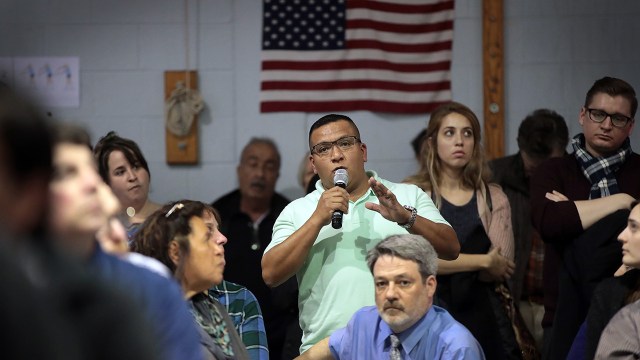
A little over a year ago, Pew Research Center decided to intensify its research focus on the theme of trust, facts and democracy. The decision reflected a changing world: In the U.S. and abroad, anxiety over misinformation has increased alongside political polarization and growing fragmentation of the media. Faith in expertise and institutions has declined, cynicism has risen, and citizens are becoming their own information curators. All of these trends are fundamentally changing the way people arrive at the kind of informed opinions that can drive effective governance and political compromise.
As part of this initiative, the Center has published more than 30 pieces of related research over the past 12 months. Two foundational efforts were our deep dive into Americans’ views of the state of our democracy and our look at Americans’ ability to distinguish between fact and opinion.
The first study found a glaring mismatch between the public’s goals for American democracy and its views of whether these goals are being achieved. Out of 23 specific measures assessing democracy, the political systems and U.S. elections – each widely regarded by the public as very important – there were only eight on which majorities said the country is doing even somewhat well. The second report explored the public’s ability to process information in more detail by asking Americans to classify 10 statements they might see in the news as either factual or opinion. Just 26% of U.S. adults correctly classified all five factual statements as factual – that is, something capable of being proved or disproved by objective evidence. Just 35% correctly identified all five opinion statements as opinion – that is, something reflecting the beliefs and values of the person who expressed it.
Today, we released a report that looks at misinformation in America. According to the study, many Americans say the creation and spread of made-up news and information is causing significant harm to the nation and needs to be stopped. Nearly seven-in-ten (68%) say made-up news and information greatly affects Americans’ confidence in government institutions, and roughly half (54%) say it is having a major impact on Americans’ confidence in each other. More Americans view made-up news as a very big problem for the country (50%) than say the same about terrorism (34%), illegal immigration (38%), racism (40%) and sexism (26%).
Of course, concerns about trust, facts and democracy are not confined to the United States. In an April report, we found broad frustration with the way democracy is working across the 27 nations we polled. In Europe, dissatisfaction with the way democracy is working is tied to factors including views about the European Union, opinions about whether immigrants are adopting national customs, attitudes toward populist parties and a sense that elected officials don’t care about what ordinary people think.
Meanwhile, it’s not just in advanced economies that there are concerns over the increasingly fast pace of digital communication and its effects on fact-based decision-making. A March study about mobile technology use in 11 emerging economies found that while people say mobile phones and social media are providing benefits, they are also concerned about these technologies’ effects on children, as well as the technologies’ role in purveying “fake news.”
Over the next few months, we will release several reports examining more closely the state of trust among Americans. These reports will include findings about people’s attitudes about specific institutions and groups, ranging from scientists and religious leaders to police, doctors and educators. They will also explore Americans’ views about the reasons for declining trust – and how they think it might be restored.
The Center also will continue its exploration of the role that digital technology plays in the way people are navigating a more complicated information environment. Many Americans tell us that when making important decisions, they “do their own research” rather than trust expert advice. But most of that research still involves deciding which information to trust and what to ignore. And as a growing share of Americans depend on mobile devices for the vast majority of their digital engagement, the nature of that engagement continues to evolve.
Outside the digital realm, we will report on the changing nature of political and social discourse in U.S. society. Building on our work on partisan polarization and antipathy, we’ll explore what Americans deem acceptable speech and how that is shaped by political, social and moral factors. More broadly, we seek to understand how feelings of alienation from the rhetoric of our political leaders and anxiety over the pitfalls of talking about social and political issues in our personal lives might be changing the civic conversation at the center of our democracy.
And looking ahead to the 2020 election cycle, the Center will complement trends about partisanship, social identity, domestic and foreign policy priorities and overall confidence in our democratic system with a concentrated focus on understanding today’s information environment and how it affects what people know and believe. Using the Center’s American Trends Panel, our goal is to map Americans’ relationship with news and information streams; track what they understand about the issues, events and candidate platforms; and study how demographic and political characteristics interact with these dynamics to shape preferences and attitudes over the course of the campaign.
All told, this body of work is meant to help explain how people in the U.S. and around the world gather information and who they turn to as they try to make sense of it. We offer this data without recommendations for action. Rather, we hope this work serves the variety of innovative approaches being offered by citizens, civic organizations and policymakers who seek to channel the power of rigorous and objective information to inform decisions and strengthen democratic life.




